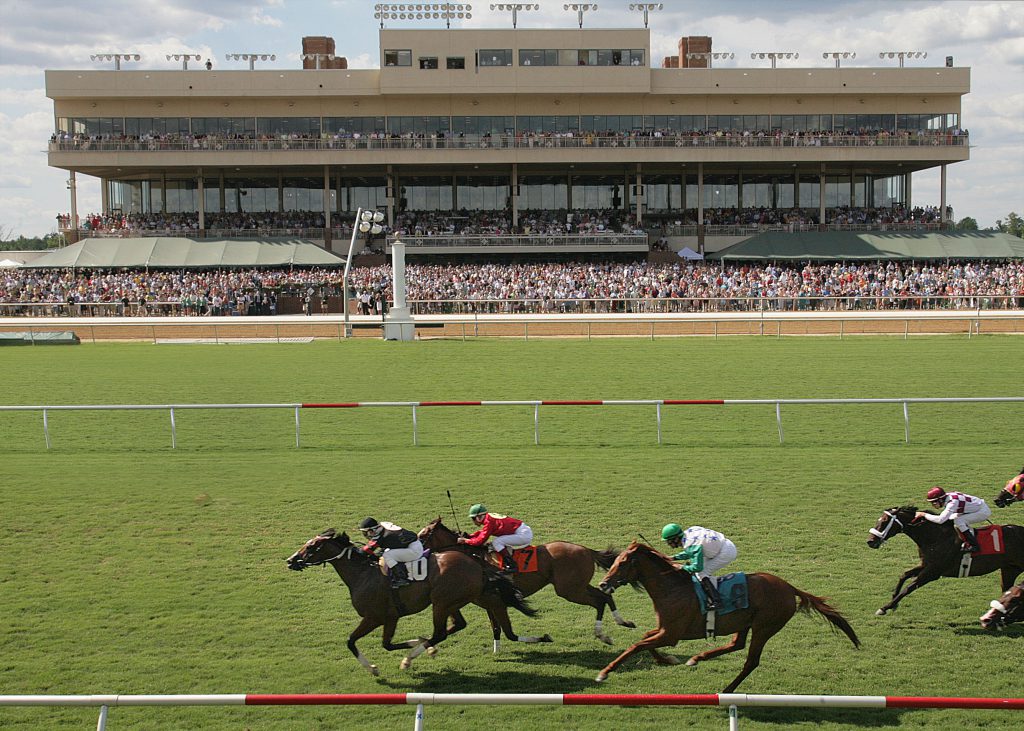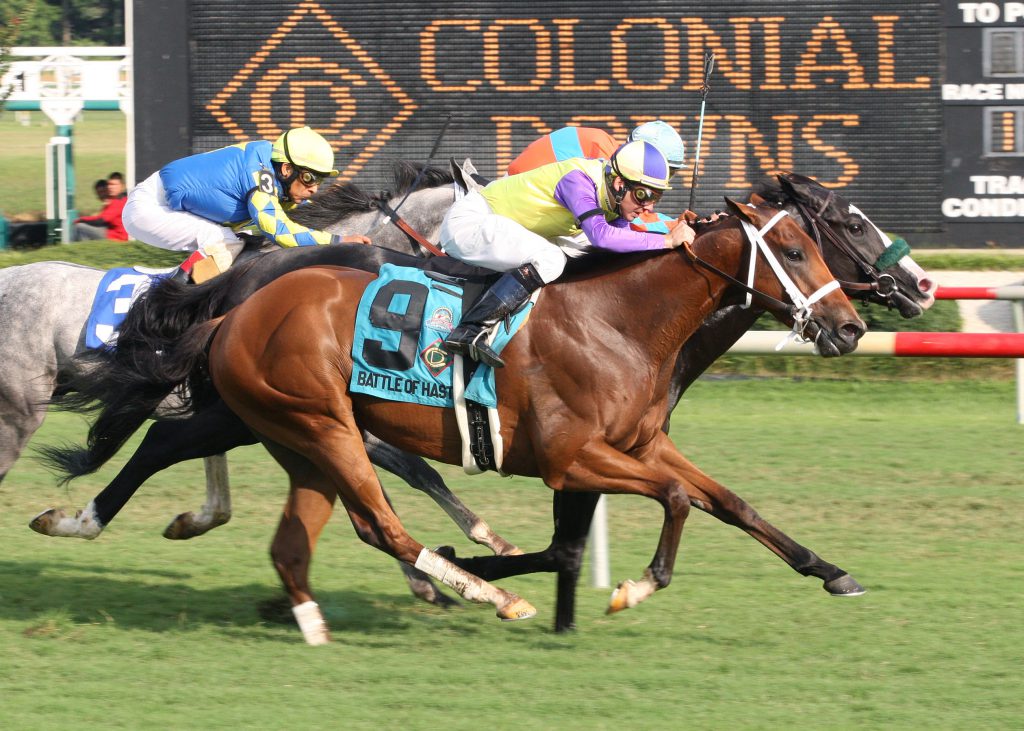The following appeared in The Racing Biz and was written by Nick Hahn.
On Wednesday, July 10, stakeholders provided one of their last formal updates to the Racing Commission prior to the August 8 re-opening of Colonial Downs.
In other words: they’re into the stretch!
Jill Byrne, Colonial’s Vice-President of Racing Operations, updated commissioners on a few ways Colonial Downs may — and may not — be similar to previous meets.
“We’re a good news story in an industry that could use some good news,” commented Byrne on the reopening of Colonial Downs. She added that the industry “faces a challenging time in its perception to safety.”

Byrne said she expected that about 80 percent of races at Colonial will be on the on the turf, “which is popular to wagerers, horsemen and for safety.” That’s approximately similar to the mix the track had in its previous incarnation.
As for the dirt course, track officials are awaiting results on testing of the rebuilt dirt surface and cushion in preparing for the opening of Colonial’s backstretch on July 25. The dirt surface at Colonial Downs had previously been annually converted for harness racing.
Jockeys at Colonial Downs will utilize padded riding crops according to Byrne. The crops are similar of those tested in a few races on Colonial Turf Cup day in June of 2008 at the New Kent County track and have become more prevalent in subsequent years.
One challenge: the shrinking horse population. In 2013, when Colonial last ran, a total of more than 58,000 horses made at least one start during the year nationwide. That number was down to 49,390 last year and, with shrinking foal crops, is expected to continue to fall.

That means that the occurrence of 14-horse fields at the new Colonial Downs may not be as frequent as it once was. On the flip side, Colonial’s generous purse structure — it’s expecting to give away about $500,000 per day and, for example, a first-level allowance will offer a purse of $60,000, far higher than any other regional track — means that it could prove a draw for horsemen from far and wide. Colonial’s 15-day meet offers racing Thursday through Saturday from August 8th to September 7th with a 5:00 pm first race post time.
Virginia’s governing body approved some operational requests that require veterinary records of the past 30 days on claimed horses and the reduction the Lasix treatment from 10 ml to 6 ml, typical of current industry standards. A roster of racing officials, stewards, signal outlets and use of benevolence money were also approved during the meeting.
Commissioners may gather one more time prior to the meet, possibly on July 22, to consider a Colonial Downs request to reduce take-outs from 18% to 16% on win-place-show wagers and from 22% to 20% on exotic wagering. A proposal to lower takeout on certain wagers such as a possible Pick-5 to 12% is also under consideration.
Licensing for the 2019 harness meet at Shenandoah Downs in Woodstock, VA was also approved by racing commissioners. The 16-day harness meet runs from September 13, 2019 to October 13, 2019 and is located in Virginia’s northern Shenandoah Valley off Interstate I-81.

